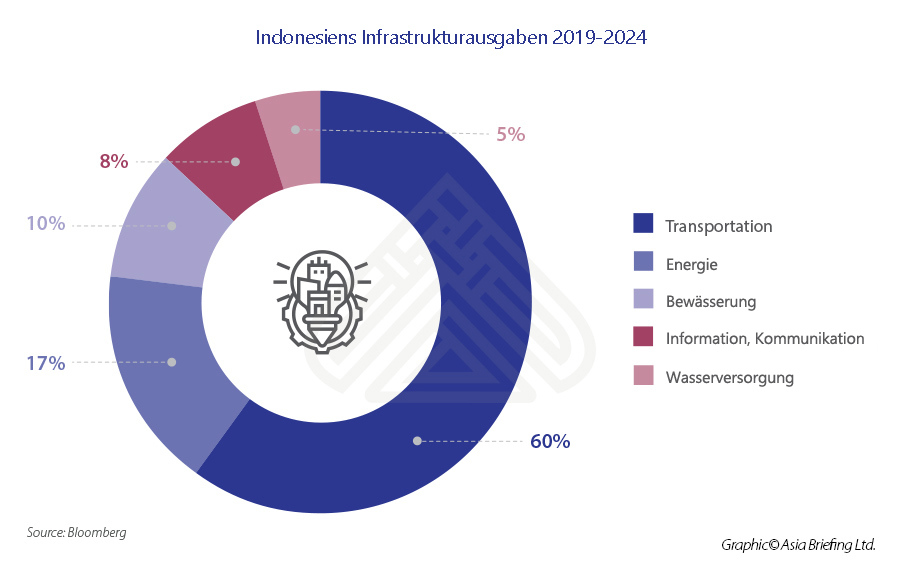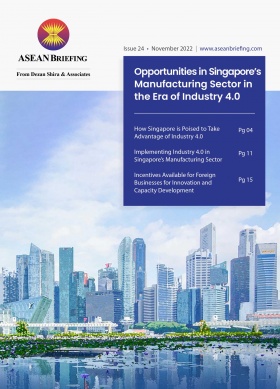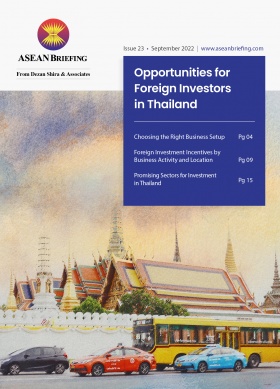UK and Indonesia Trade and Investment Opportunities
The UK is seeking to forge greater economic ties with the Indo-Pacific and Indonesia is among its key partners in Southeast Asia. Both countries are aiming to strengthen trade and investment links, particularly in the areas of education, healthcare, and infrastructure development.
The UK and Indonesia have established diplomatic relations since 1949 with bilateral trade reaching just over US$2 billion in 2021. Prior to the pandemic, annual bilateral trade reached approximately US$3.8 billion.
Indonesia enjoyed a trade surplus of more than US$2 billion in 2021, which was dominated by footwear products (US$231 million), wood and articles of wood (US$191 million), animal, and vegetable fats, and oils, (US$94 million), lighting signs and prefabricated buildings (US$78 million), and furniture (US$78 million).
UK exports to Indonesia for the same year included machinery, nuclear reactors, and boilers (US$150 million), vehicles and tramways (US$104 million), the pulp of wood (US$99 million), pharmaceutical products (US$65 million), and iron and steel products (US$59 million).
The UK is seeking to forge greater economic and security links with the Indo-Pacific region and plans to spend up to 500 million GBP (US$606 million) on green infrastructure projects in Indonesia, Vietnam, the Philippines, Cambodia, and Laos over the next five years. Moreover, the UK is also seeking to join the Comprehensive and Progressive Agreement for Trans-Pacific Partnership (CPTPP) and will be the first European country to do so if it succeeds.Britain sees Indonesia as an important partner in Southeast Asia, particularly as the archipelago is predicted to be the seventh-largest economy in the world by 2030 with 135 million people expected to enter the middle-class demographic. Further, there are some US$1.8 trillion in investment opportunities, ranging from consumer services to agriculture.
The joint economic and trade committee
Indonesia and the UK announced the creation of a joint economic and trade committee (JETCO) and a joint trade review (JTR) to further strengthen trade and investment links. The JTR identified nine key factors for enhanced cooperation, which include renewable and green energy, food and beverages, healthcare and life science, education and training, agriculture, and finance and professional services.
Opportunities for British businesses in Indonesia
Indonesia presents a huge opportunity for British investors given its status as the largest economy in ASEAN, a young workforce, and a rapidly expanding middle class.
Healthcare and pharmaceuticals
Given its large market size, Indonesia’s healthcare sector presents a lucrative opportunity for foreign investors.
The government’s annual spending on healthcare has skyrocketed since the implementation of the universal healthcare program (BPJS) in 2014, which has now grown to be the world’s largest, covering some 200 million people. Every citizen and expatriate is mandated to join, and companies must register their employees to the program, paying a percentage of the premiums.
Increasing spending on healthcare will impact important sub-sectors, such as the medical devices industry, which was valued at US$4.5 billion in 2019. The majority of this, US$2.8 billion, was from imports. Indonesia mainly imports sophisticated medical instruments, such as PET-CT scanners and ICU equipment, and exports low-tech equipment, such as gloves and syringes.
The pharmaceutical industry is dominated by generic drugs (70 percent) with the remainder from over-the-counter (OTC) drugs. The BPJS program has boosted sales of generic drugs in the country, valued at more than US$700 million.
Infrastructure development
Infrastructure has been at the forefront of the Joko Widodo government since 2014. The President stated in late 2021 that in the last six years, his government has built 1,640km of highways and 4,600km of non-highway roads. In addition, there are now 15 new airports with expansion work and renovations happening on a further 38. Further, the government has built 22 dams and is in the process of developing 124 new ports. There will be 65 new dams nationwide by 2024.
Between 2022 and 2024, Indonesia requires some US$445 billion for infrastructure investments.
Indonesia’s digital economy
Indonesia is also eager to use the forum to push for equitable access for technology and capital, particularly for burgeoning tech startups; Indonesia’s digital economy is expected to reach over US$125 billion by 2025.
The country is Southeast Asia’s largest and fastest-growing internet economy – more than 170 million Indonesians had access to the internet in 2020, with 10 percent engaging in online shopping. E-commerce is the driving force behind the transformation of Indonesia’s retail landscape, and the country’s gross merchandise value (GMV) was the third highest in the world at US$40 billion, beating India at US$38 billion.
Indonesia thus presents ample and scalable digital opportunities for foreign investors, particularly in e-commerce, fintech, and the Internet of Things (IoT). In trying to fully capitalize on this growth potential, Indonesia’s government issued new digital and e-commerce tax laws in 2020, a sign of the improving regulatory landscape. This will be facilitated by the country’s vibrant technology sector, supported by one of the highest concentrations of startups in the world.
Education
Indonesia has one of the largest education systems in the world with some 55 million students. Further, with a strong economy, there is a growing public appetite for higher education as Indonesians have more disposable income to spend on education.
The country’s higher education sector is expected to be worth US$118 billion by 2025. This presents ample opportunities for British education institutions to enter the Indonesian education market, particularly since the UK is known for the quality of its universities and vocational schools.
Indonesian companies have cited difficulties in recruiting employees for managerial and professional levels. An OECD report in 2020 found that only 11.9 percent of adults had completed tertiary education, far below the OECD average of 44 percent.
Improving the outcomes of its higher education institutions will be key to solving this issue for Indonesia. As such, the government plans to add 57 million skilled workers to the economy by 2030. To achieve this, the government has set specific targets for its education sector which include:
- Increasing the number of science and engineering graduates;
- Improving the science and technology of local universities through international cooperation;
- Improving graduate employability in higher education and vocational education sectors; and
- Improving the quality of research and innovation activities.
Related Reading
- Opportunities in Indonesia’s Special Economic Zones: Choosing the Ideal Location for Your ASEAN Business
- Diversify Your Business to Indonesia – The Ins and Outs of Set Up
- The RCEP Advantage: Part 3 – Exploring Trade Opportunities in Indonesia
About Us
ASEAN Briefing is produced by Dezan Shira & Associates. The firm assists foreign investors throughout Asia and maintains offices throughout ASEAN, including in Singapore, Hanoi, Ho Chi Minh City, and Da Nang in Vietnam, Munich, and Esen in Germany, Boston, and Salt Lake City in the United States, Milan, Conegliano, and Udine in Italy, in addition to Jakarta, and Batam in Indonesia. We also have partner firms in Malaysia, Bangladesh, the Philippines, and Thailand as well as our practices in China and India. Please contact us at asia@dezshira.com or visit our website at www.dezshira.com.
- Previous Article Indonesia Increases the Minimum Wage for 2023
- Next Article ASEAN-Australia-New Zealand Free Trade Area Upgraded









